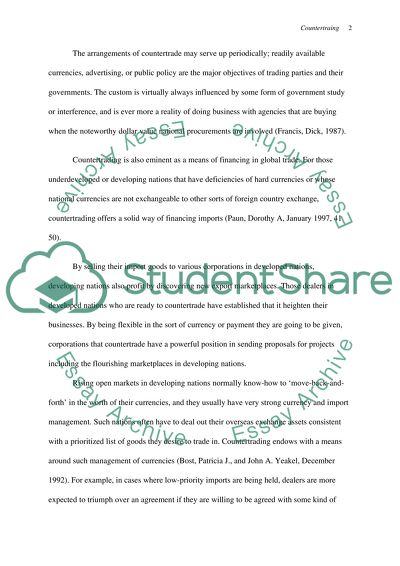Cite this document
(“Despite most currencies being convertible why does countertrade Essay”, n.d.)
Despite most currencies being convertible why does countertrade Essay. Retrieved from https://studentshare.org/miscellaneous/1539839-despite-most-currencies-being-convertible-why-does-countertrade-persist-illustrate-your-answer-with-examples-of-different-types-of-countertrade
Despite most currencies being convertible why does countertrade Essay. Retrieved from https://studentshare.org/miscellaneous/1539839-despite-most-currencies-being-convertible-why-does-countertrade-persist-illustrate-your-answer-with-examples-of-different-types-of-countertrade
(Despite Most Currencies Being Convertible Why Does Countertrade Essay)
Despite Most Currencies Being Convertible Why Does Countertrade Essay. https://studentshare.org/miscellaneous/1539839-despite-most-currencies-being-convertible-why-does-countertrade-persist-illustrate-your-answer-with-examples-of-different-types-of-countertrade.
Despite Most Currencies Being Convertible Why Does Countertrade Essay. https://studentshare.org/miscellaneous/1539839-despite-most-currencies-being-convertible-why-does-countertrade-persist-illustrate-your-answer-with-examples-of-different-types-of-countertrade.
“Despite Most Currencies Being Convertible Why Does Countertrade Essay”, n.d. https://studentshare.org/miscellaneous/1539839-despite-most-currencies-being-convertible-why-does-countertrade-persist-illustrate-your-answer-with-examples-of-different-types-of-countertrade.


